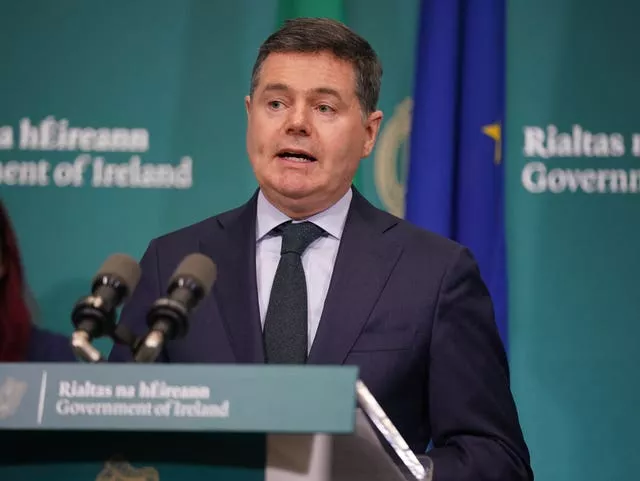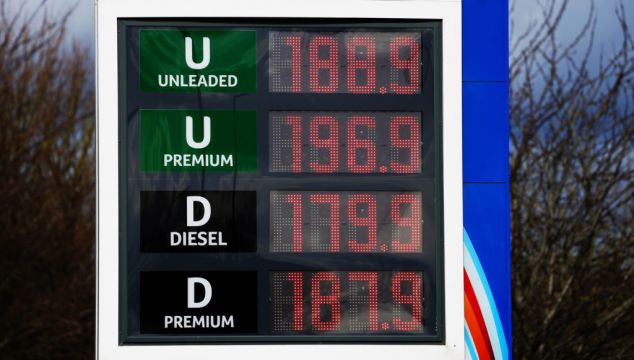A significant cut in the excise duty on fuel has been announced by the Government, with Minister for Finance Paschal Donohoe confirming a cut of 20 cent per litre on petrol and 15 cent per litre of diesel.
However, Mr Donohoe warned there was only so much the Government could do to insulate businesses and consumers from a rise in costs exacerbated by the war in Ukraine.
The measure, introduced amid concerns about growing pressures on the cost of living, will last until August 31st.
The Government estimates that the measure will cost €320 million.
The move, which was agreed following a virtual Cabinet meeting earlier today, will take effect from Thursday.

Ministers said the cut would reduce the cost of filling a 60-litre tank by €12 for petrol and €9 for diesel.
They stressed the Government was acting in response to the spike in prices already witnessed, but also ahead of anticipated further rises in costs as the war in Ukraine continues.
In recent days, as the crisis in Ukraine escalated, the Government had softened on its previous cast-iron refusal to intervene again on the cost of living before the budget in October.
However, Mr Donohoe said that the latest crisis is different: “What is happening here is, tragically, a conscious decision to inflict violence and terror on another country.
“There is a man-made capacity behind this that we all hoped we would not have to confront again in Europe.
“Now that is why we, even though, geographically, we are at a distance from what is now happening, we have obligations and we have commitments to help and we are determined to do.”
After our calls yesterday, Government finally has accepted the need to act on fuel prices. They must intervene on home heating oil too. No half measures. We have a cost of living crisis. We can't afford a dithering government. We are continuing our pressure on these matters today pic.twitter.com/uJRIze1eTd
— Mary Lou McDonald (@MaryLouMcDonald) March 9, 2022
Mr Donohoe rejected calls from Sinn Féin to go further, with party leader Mary Lou McDonald calling for “no half measures” from the Government.
“The times are too serious for auction politics, with the risks that Europe, our country faces, as we face the consequences of war,” Mr Donohoe said.

The scale of the crisis on the continent of Europe will have an as-yet-to-be-determined effect on Ireland, officials warned on Wednesday.
“The Government has responded to help to ease the impact of these price changes, but we cannot protect citizens and businesses from the entire cost,” Mr Donohoe said.
“The Government does want to be very honest about what we can do and the level of protection and support that we can offer. We can make a difference.
“We can help in covering the costs and in helping make a contribution to the costs that many are facing. But we are not in a position to insulate our economy, insulate our country, entirely from the global pressures that are taking place at the moment.”
Minister for Public Expenditure Michael McGrath said he expects hundreds of millions of euro will be spent by the Government welcoming and supporting refugees from Ukraine.
“There will be a cost, but whatever the cost is, it is a cost that we can afford and it’s a cost that pales into insignificance compared to the suffering and the human misery the people of Ukraine are facing.”
Minister for the Environment Eamon Ryan insisted the best way to land a blow to Ruissian president Vladimir Putin was to stop buying Russian oil, gas and coal.
“The best way of protecting our security in Europe and helping people in Ukraine and improving our economic situation is to switch,” the Green Party leader said.
He said this was something that was needed regardless as the country reaches for its ambitious climate change targets, adding that people might drive slower to save on fuel.
However, Mr Ryan described the prospect of fuel and energy rationing in the weeks and months to come as “low”.







